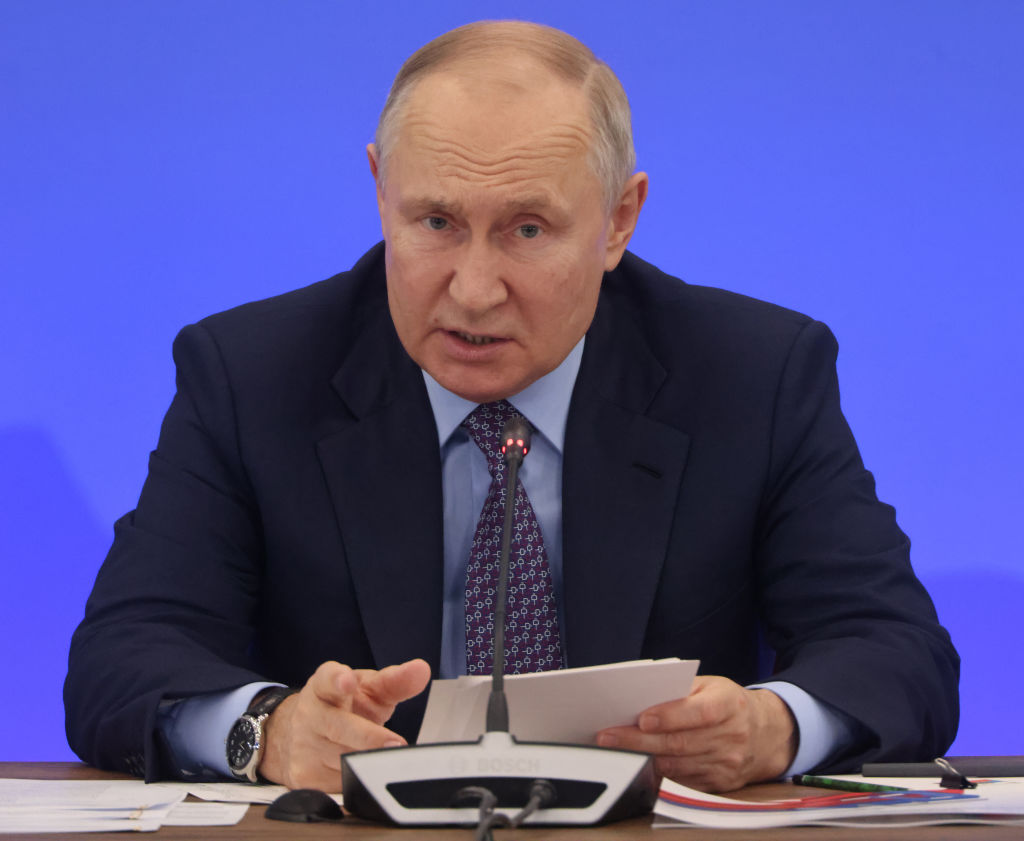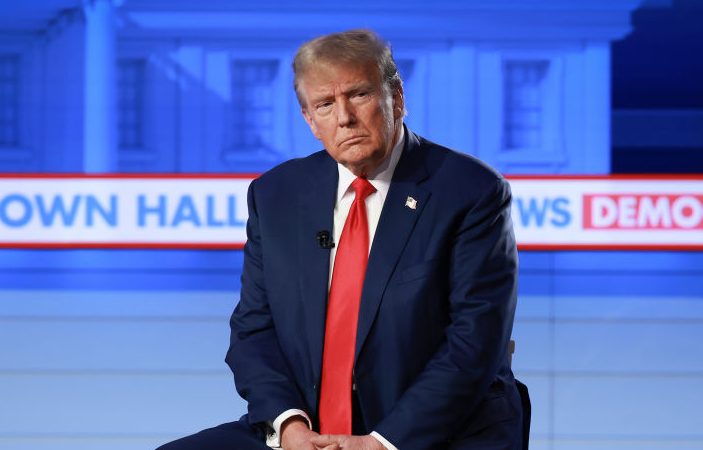The Western alliance responded vigorously to the Russian invasion of Ukraine and thoroughly debunked the Sino-Russian background chorus of the time that the Western alliance was now a decrepit myth from the Cold War of no current relevance.
The German Chancellor, Olaf Scholz, having started out with a contemptible shipment of helmets for the Ukrainian forces, strode to the podium of the Bundestag and announced that Germany would hereafter meet its commitment to two per cent of GDP for defence and got the ball rolling with a motion for €100 billion to begin the long-deferred task of getting Germany’s armed forces up to strength.
The performance of his government since then has been uneven and he appears to have flopped backwards into the unbecoming German fear that equipping Ukraine with weapons that can respond into Russia itself as the Russian shooting-gallery game of firing missiles into residential areas throughout Ukraine continues, could lead to a nuclear war.
As long as Europe’s strongest country continues to be hobbled by such a defeatist refusal to recognise its own strength, there will be a standing invitation to the Kremlin to continue to try to undo the Western victory in the Cold War by reconquering former units of the Soviet Union.
Assuming that Ukraine survives this crisis, a large part of the credit for that will go to Boris Johnson for his immediate and purposeful response to the Russian invasion and his persuasive encouragement of the initially irresolute Biden administration.
And the states that had directly endured Soviet occupation, especially Poland and the Baltic republics, responded magnificently. Hungary’s performance was disappointing but to some extent the Orban government is rooted in ancient abrasions between Slavs and Magyars, and to some extent in Orban’s own complicated vision of Hungary as a semi-neutral zone between the Russians and the West. There is a little of Andrassy, and even of Admiral Horthy in his own soul.
Once it became clear that Ukraine was going to resist tenaciously and effectively, the Biden administration, which had initially written off Ukraine, suddenly came frisking back and rivaled Ukrainian President Zelensky himself in dismissive remarks about Russia and President Putin as a “war criminal” whose “ruble will be reduced to rubble”.
America responded generously but according to a completely unrealistic notion of avoiding escalation. It all reminded those of us who remembered that far back of Vietnam: it was never clear that the real war-aim was victory – “That might be escalatory.”
But the first year of the war received a generally purposeful Western response and Sweden and Finland, countries which had been steeped to the eyeballs in neutrality since the Napoleonic Wars in the case of Sweden and since its launch as a country after World War I in the case of Finland, sought and have received NATO membership.
Unfortunately, the Biden administration is one of those, of which there have been a number of precedents in American history since World War I, that cannot be relied upon for foreign-policy consistency.
The opposition Republican Party retains some of the old Midwestern isolationist spirit that caused America to balk at joining the League of Nations which it invented and at subscribing to the promised alliance with Britain and France. This disposition objected to Roosevelt’s great rearmament programme in the first two years of World War II, and to his Lend-Lease policy which enabled Britain and Canada to remain at war with Germany before the Soviet Union and the United States were plunged into that war.
The result, as the world notes with consternation in Allied circles and jubilation in Moscow and Beijing and some lesser capitals, is that the Republicans tried to trade approval of aid to Ukraine, Israel, and Taiwan for the reimposition of a genuine southern border and the end of the Biden policy of admitting up to 3.5 million illegal “newcomers” across that border annually.
The bipartisan compromise that was reached was utter nonsense and blew up with such force that the timeless Republican Senate leader, Mr McConnell of Kentucky, felt moved to announce his retirement. The plan was to confine illegal immigration to approximately 2 million people per year.
All of this is the kind of churlish, irresponsible, isolationist nonsense that is only practiced in the United States when there is a president and administration too enfeebled by lack of moral authority and political virtuosity to agree and implement a well-thought-out, well-explained and consistent definition of the national interest in foreign policy matters.
It is scandalous that these questions of the utmost importance to the new country of Ukraine, and to two of America’s greatest allies and beneficiaries, Israel and Taiwan, could become part of a legislative scrum in a nasty presidential election year, balanced against important but completely unrelated matters.
The Americans frequently have a perfect right to object to the whining and freeloading of many of its allies in Europe and Canada. But occasionally the collective and legitimate interests of the West require those allies to speak in one clear voice for the collective interest and to remind the Americans of where their clear moral duty and unmistakable national interest reside.
If Russia succeeds in its naked aggression in the heart of Europe, Hamas survives its act of war of October 7, or Chinese intimidation is rewarded in Taiwan, strategic disaster and the moral implosion of the West will result.
Allies, and especially allies as collectively powerful and successful over the last 75 years as the NATO allies, owe each other the duty of absolute candour at such times as these.
The good news of the last week is that former president Trump, now the favoured candidate in the election, warns that Putin hopes for the reelection of Biden to gain victory over Ukraine. He appears to speak for the American majority.





Read the latest outpouring in Foreign Affairs – and wonder at the European establishment’s sheer lack of understanding of the United States and Donald Trump